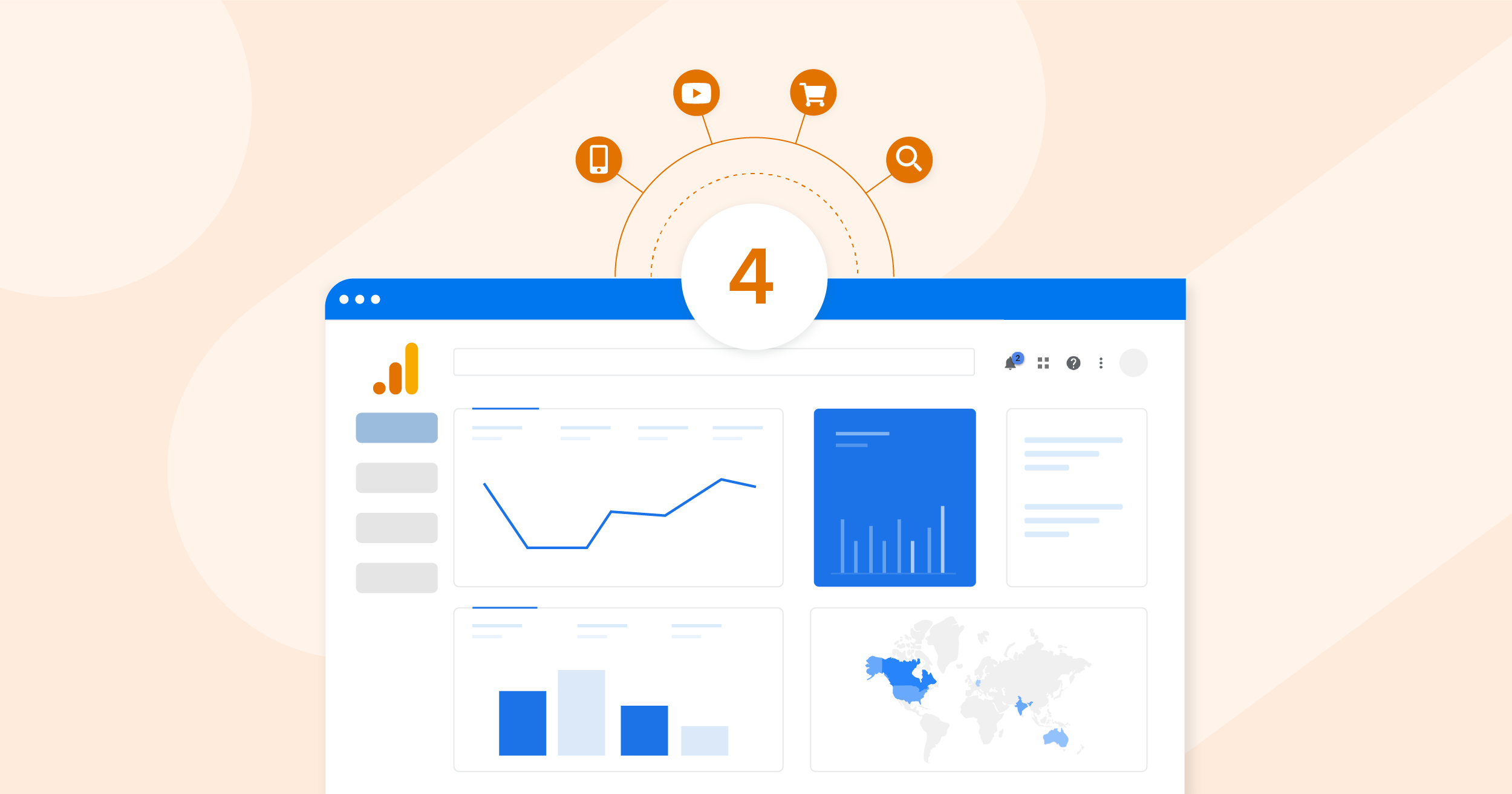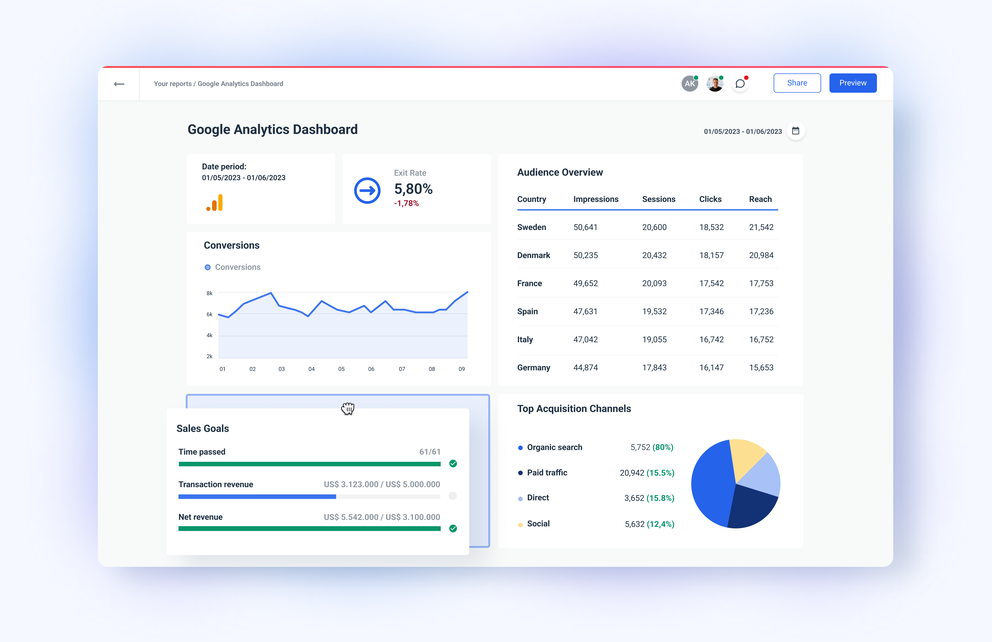When Does the Google Analytics Tracking Code Send an Event Hit to Analytics? Timing and Best Practices Explained
When Does the Google Analytics Tracking Code Send an Event Hit to Analytics? Timing and Best Practices Explained
Blog Article
Maximize Your Site Efficiency With Google Analytics Monitoring Code
In the electronic landscape, understanding customer interactions with your site is vital for optimization. By incorporating the Google Analytics tracking code, you can unlock a wide range of information regarding site visitor actions, enabling you to keep track of important metrics and identify potential locations for enhancement. This calculated application not just educates your choices but also leads the way for a more appealing user experience. However, the actual difficulty depends on properly assessing this data and equating insights into actionable strategies. What steps can you require to guarantee you are totally leveraging these insights for optimum performance?
Understanding Google Analytics
Recognizing Google Analytics is necessary for site owners and marketing professionals aiming to maximize their online presence. This effective tool provides important insights into user actions, enabling stakeholders to make data-driven decisions. By tracking different metrics, such as page views, bounce prices, and individual demographics, Google Analytics helps determine which aspects of a web site are carrying out well and which require improvement.
Among the essential features of Google Analytics is its capacity to segment data. Individuals can assess traffic sources, individual engagement, and conversion prices across various sectors, such as geographic areas or device kinds. This granularity enables marketing professionals to customize their strategies to specific target markets, thereby boosting the efficiency of their campaigns.

Establishing Tracking Code
To harness the full possibility of Google Analytics, establishing the monitoring code correctly is a fundamental step. The tracking code, a fragment of JavaScript, enables Google Analytics to gather information concerning individual communications on your web site. To begin, log in to your Google Analytics account and browse to the Admin section. Under the Property column, select "Tracking Info" and afterwards "Tracking Code." Here, you will discover your unique monitoring ID, which starts with "UA-" followed by a collection of numbers.
Following, you'll need to embed this code into the HTML of your website. Preferably, position the tracking code right before the closing tag on every web page you desire to keep an eye on. If you're using a content administration system (CMS) like WordPress, think about making use of plugins that facilitate easy assimilation.
After executing the code, it's critical to confirm its capability. Utilize the "Real-Time" reports in Google Analytics to validate click for source that information is being collected as anticipated. By ensuring appropriate arrangement, you produce a solid foundation for efficient data evaluation and calculated decision-making to improve your web site's performance.
Trick Metrics to Screen
Regularly keeping track of essential metrics in Google Analytics is important for analyzing your website's performance and customer engagement. Among the essential metrics to track are web page views, which supply understanding into exactly how typically users see various web pages on your website. Furthermore, unique site visitors aid you recognize the reach of your content by indicating the number of distinctive users are engaging with your website over a given duration.
Bounce price is another crucial statistics, exposing the percentage of visitors that leave your website after seeing just one web page. A high bounce price may indicate issues with content relevance or individual experience. Conversely, session duration suggests the length of time visitors remain on your website, assisting you evaluate material performance and user passion.
Conversion prices are vital for determining the success of your web site in accomplishing details goals, such as kind submissions or item purchases (when does the google analytics tracking code send an event hit to analytics?). Keeping an eye on traffic resources is additionally essential, as it helps identify which networks drive one of the most traffic and conversions, allowing for more targeted advertising strategies
Studying Visitor Actions

Furthermore, tracking user paths through the site aids reveal typical navigation patterns. This information is essential in identifying whether customers can quickly locate the web content they seek or if they run into barriers that lead to disappointment. Recognizing high visit the website leave pages can highlight areas that might require redesign or even more appealing web content to maintain visitors.
In addition, segmenting users based upon demographics, interests, and habits supplies a much deeper understanding of the target market. This segmentation makes it possible for organizations to customize material and advertising and marketing approaches better, raising the likelihood of conversions. Eventually, examining site visitor actions not only informs website enhancements however also fosters a more user-centric approach, causing improved contentment and loyalty in time.
Executing Data-Driven Adjustments
Applying data-driven changes is vital for enhancing website efficiency and attaining service objectives. By leveraging insights collected from Google Analytics, services can recognize locations for renovation and make pop over to this site educated choices to optimize user experience.
First, assess crucial performance signs (KPIs) such as bounce rates, session duration, and conversion rates to determine particular issues impacting user interaction - when does the google analytics tracking code send an event hit to analytics?. For example, a high bounce rate on a touchdown web page might suggest that the web content is not resonating with visitors or that the web page takes as well lengthy to load

Conclusion
In conclusion, the execution of Google Analytics tracking code is important for optimizing website performance. By properly keeping an eye on customer behavior and essential metrics, beneficial understandings can be gotten, assisting in data-driven decision-making.
By tracking numerous metrics, such as web page sights, bounce prices, and customer demographics, Google Analytics helps determine which facets of a web site are performing well and which call for enhancement.
Individuals can analyze traffic resources, user engagement, and conversion prices throughout different segments, such as geographical locations or tool types. The tracking code, a fragment of JavaScript, allows Google Analytics to collect data concerning customer interactions on your website.Frequently keeping track of key metrics in Google Analytics is crucial for evaluating your website's efficiency and individual involvement. By leveraging Google Analytics, web site owners can obtain useful insights right into how individuals interact with their website.
Report this page